After I saw Public Enemy in its top 8 MySpace friends, I approached The Weather Underground about contributing a post for I Used to Love H.E.R., a series in which artists/bloggers/writers discuss their most essential or favorite hip-hop albums (read intro). The four guys – Ryan, Shoichi, Harley and Diego – put together a mix tape of sorts, each contributing entries for their favorite records.
The LA band plays Saturday at Modified in Phoenix. Read about the group at the LA Times’ The Guide.
The Weather Underground | Neal Cassady
13. Dead Prez – Lets Get Free (2000)
I had to pick this record because, truth be told, they’re so damn articulate and intelligent. When I started this band I listened to a lot of this record and it has the same mantra and ethos that I’ve always had. Mind Sex, They Schools and Be Healthy just speak to me. “These Schools can’t teach us shit / My people need freedom / trying to get all we can get / all my high school teachers can suck … telling me White Man lies, straight bullshit!” – Harley
[VIDEO]: Dead Prez | They School
12. Tupac – Me Against the World (1995)
This record transfixed a lot of people. And Tupac was brilliant. Incredibly talented, wise, and well read. As much of an enigma he has become, his voice and lyrics on this record certainly expose those overlooked facts about the man who named Khalil Gibran and Kurt Vonnegut as influences. – Harley
11. Black Sheep – A Wolf in Sheep’s Clothing (1991)
This beat out Kool Keith by the power of vote. Perhaps it deserves to be on the list over Biggie or Dr. Octagon because it preceded them with witty lyrics, at times comical, and just a pure catchiness of that era in hip-hop. Black Elvis always seemed like the response to Black Sheep. Check out The Choice is Yours; you probably don’t even know that you already know the song. – Diego
Black Sheep | The Choice is Yours (revisited)
10. The Pharcyde – Bizarre Ride II the Pharcyde (1992)
This record was an early ’90s opus of rhymes and musicality that proved LA wasn’t only vatos and gangsters. -Sho
9. A Tribe Called Quest – Midnight Marauders (1993)
Brilliant in many ways. Especially for it’s time. -Sho
A Tribe Called Quest | Lyrics To Go
8. De La Soul – 3 Feet High and Rising/De La Soul is Dead (1989/1991)
De La Soul were huge in my life. Ask anybody who grew up with me. I associate De La Soul with a very heavy time and transition in my life (moving from LA to NYC to go to high school was, initially, like going to a different planet) so they are key and very important to me. In fact I love almost everything they put out up until Art Official Intelligence – Harley
7. Eazy E – Eazy-Duz-It (1988)
A friend brought it in to my grade school and we all gathered around a set of headphones we plugged into it so the teacher couldn’t hear. I remember when they got handed to me I heard: “Then I’ll get another pussy put it in the freezer, so I can always have an on-hold skeezer.” My mom took it away. A funk and soul masterpiece. -Ryan
6. EPMD – Strictly Business (1988)
“Relax your mind let your conscience be free and get down to the sounds of EPMD.”
5. Gang Starr – Step into the Arena/Daily Operation (1991/1992)
Guru’s voice has always been a source of calm and contemplation. It’s got a forcefulness but manages to stay subtle. At times they delivered a message in the same vein as Public Enemy and at other times in the same vein as NWA. The difference was Guru’s delivery. It’s like he’s explaining something and handing you knowledge, not delivering a speech or preaching to you. Sometimes, from my experience, it its perhaps the most effective way to send a message. -Harley
[VIDEO]: Gang Starr | Take it Personal
4. Eric B. & Rakim – Follow the Leader (1988)
I loved this record so much I used to fall alseep to it. And much like I do now, I would get to a place right before unconsciousness and the whole spectrum of what is happening would hit me. It’s the never-ending, passionate, effortless phrasing of Rakim. The music is dark. –Ryan
3. Guru- Jazzmatazz Vol. 1 and 2 (1993/1995)
 My older brother dropped out of high school and moved out of the house when he was 16 years old. I was about 13 and would shortly thereafter move from Los Angeles to Queens, NY, when my mom remarried. When my brother would visit me he would take me out to dinner. In his car he would always have the same records in his tape player: Guru’s Jazzmatazz and Gang Starr’s Step into the Arena. We used to bond over those records for the few moments we’d spend together. – Harley
My older brother dropped out of high school and moved out of the house when he was 16 years old. I was about 13 and would shortly thereafter move from Los Angeles to Queens, NY, when my mom remarried. When my brother would visit me he would take me out to dinner. In his car he would always have the same records in his tape player: Guru’s Jazzmatazz and Gang Starr’s Step into the Arena. We used to bond over those records for the few moments we’d spend together. – Harley
2. NWA – Straight Outta Compton (1988)
 We all wanted to pick The Chronic by Dre or even Predator by Ice Cube, but we decided that this record started it all and it has some great gems in it. Fuck Tha Police, Straight Outta Compton and even the now-charming Express Yourself. A little unknown fact about TWU is that we listen to a lot of Ice Cube on tour — we’re not joking. It’s like taking a little bit of home on the road with you. Sometimes Ice Cube or Dre in the middle of a long desert drive is the most comforting voice you could ever want at that moment. -Diego
We all wanted to pick The Chronic by Dre or even Predator by Ice Cube, but we decided that this record started it all and it has some great gems in it. Fuck Tha Police, Straight Outta Compton and even the now-charming Express Yourself. A little unknown fact about TWU is that we listen to a lot of Ice Cube on tour — we’re not joking. It’s like taking a little bit of home on the road with you. Sometimes Ice Cube or Dre in the middle of a long desert drive is the most comforting voice you could ever want at that moment. -Diego
N.W.A. | Straight Outta Compton
1. Public Enemy – It Takes a Nation of Millions to Hold us Back/Fight the Power single (1988/1989)
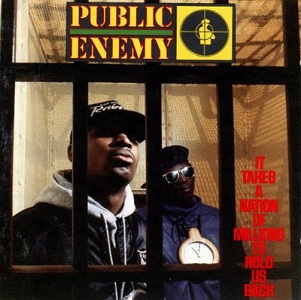 When Fight the Power came out I was starting to listen to my “own” music and started going to Sam Goody and buying my own tapes. I bought it as a tape. It was a single, I think from the Do the Right Thing soundtrack, originally. There is still something I feel when I listen to this song. It doesn’t seem as tough now as it did when I was 9 years old, but with lines like “our freedom of speech is our freedom of death, we have to fight the power…”, I remember it was one of the first few records I ever bought that got me worked up. Really motivated me. That lead me to later get PE’s previous release, their second record, the seminal It Takes a Nation of Millions. For me it is perhaps one of the most influential records (let alone hip-hop records) of my life. It always goes back PE for me and though some will disagree (even within our own band) this has to go down as one of the most influential records. Channeling poverty and broken home through anger was nothing new, but singing along to this in the garage was a cathartic release that followed me for a large part of my life no matter what I listened to at any respective age. – Harley
When Fight the Power came out I was starting to listen to my “own” music and started going to Sam Goody and buying my own tapes. I bought it as a tape. It was a single, I think from the Do the Right Thing soundtrack, originally. There is still something I feel when I listen to this song. It doesn’t seem as tough now as it did when I was 9 years old, but with lines like “our freedom of speech is our freedom of death, we have to fight the power…”, I remember it was one of the first few records I ever bought that got me worked up. Really motivated me. That lead me to later get PE’s previous release, their second record, the seminal It Takes a Nation of Millions. For me it is perhaps one of the most influential records (let alone hip-hop records) of my life. It always goes back PE for me and though some will disagree (even within our own band) this has to go down as one of the most influential records. Channeling poverty and broken home through anger was nothing new, but singing along to this in the garage was a cathartic release that followed me for a large part of my life no matter what I listened to at any respective age. – Harley
Public Enemy | Fight the Power
 De La Soul
De La Soul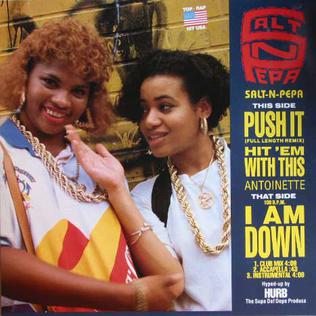 Salt-n-Pepa
Salt-n-Pepa Antipop Consortium
Antipop Consortium
 De La Soul
De La Soul My older brother dropped out of high school and moved out of the house when he was 16 years old. I was about 13 and would shortly thereafter move from Los Angeles to Queens, NY, when my mom remarried. When my brother would visit me he would take me out to dinner. In his car he would always have the same records in his tape player: Guru’s Jazzmatazz and Gang Starr’s Step into the Arena. We used to bond over those records for the few moments we’d spend together. – Harley
My older brother dropped out of high school and moved out of the house when he was 16 years old. I was about 13 and would shortly thereafter move from Los Angeles to Queens, NY, when my mom remarried. When my brother would visit me he would take me out to dinner. In his car he would always have the same records in his tape player: Guru’s Jazzmatazz and Gang Starr’s Step into the Arena. We used to bond over those records for the few moments we’d spend together. – Harley We all wanted to pick The Chronic by Dre or even Predator by Ice Cube, but we decided that this record started it all and it has some great gems in it. Fuck Tha Police, Straight Outta Compton and even the now-charming Express Yourself. A little unknown fact about TWU is that we listen to a lot of Ice Cube on tour — we’re not joking. It’s like taking a little bit of home on the road with you. Sometimes Ice Cube or Dre in the middle of a long desert drive is the most comforting voice you could ever want at that moment. -Diego
We all wanted to pick The Chronic by Dre or even Predator by Ice Cube, but we decided that this record started it all and it has some great gems in it. Fuck Tha Police, Straight Outta Compton and even the now-charming Express Yourself. A little unknown fact about TWU is that we listen to a lot of Ice Cube on tour — we’re not joking. It’s like taking a little bit of home on the road with you. Sometimes Ice Cube or Dre in the middle of a long desert drive is the most comforting voice you could ever want at that moment. -Diego When Fight the Power came out I was starting to listen to my “own” music and started going to Sam Goody and buying my own tapes. I bought it as a tape. It was a single, I think from the Do the Right Thing soundtrack, originally. There is still something I feel when I listen to this song. It doesn’t seem as tough now as it did when I was 9 years old, but with lines like “our freedom of speech is our freedom of death, we have to fight the power…”, I remember it was one of the first few records I ever bought that got me worked up. Really motivated me. That lead me to later get PE’s previous release, their second record, the seminal It Takes a Nation of Millions. For me it is perhaps one of the most influential records (let alone hip-hop records) of my life. It always goes back PE for me and though some will disagree (even within our own band) this has to go down as one of the most influential records. Channeling poverty and broken home through anger was nothing new, but singing along to this in the garage was a cathartic release that followed me for a large part of my life no matter what I listened to at any respective age. – Harley
When Fight the Power came out I was starting to listen to my “own” music and started going to Sam Goody and buying my own tapes. I bought it as a tape. It was a single, I think from the Do the Right Thing soundtrack, originally. There is still something I feel when I listen to this song. It doesn’t seem as tough now as it did when I was 9 years old, but with lines like “our freedom of speech is our freedom of death, we have to fight the power…”, I remember it was one of the first few records I ever bought that got me worked up. Really motivated me. That lead me to later get PE’s previous release, their second record, the seminal It Takes a Nation of Millions. For me it is perhaps one of the most influential records (let alone hip-hop records) of my life. It always goes back PE for me and though some will disagree (even within our own band) this has to go down as one of the most influential records. Channeling poverty and broken home through anger was nothing new, but singing along to this in the garage was a cathartic release that followed me for a large part of my life no matter what I listened to at any respective age. – Harley Madvillain
Madvillain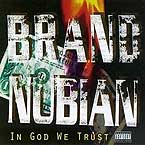 Brand Nubian
Brand Nubian Redman
Redman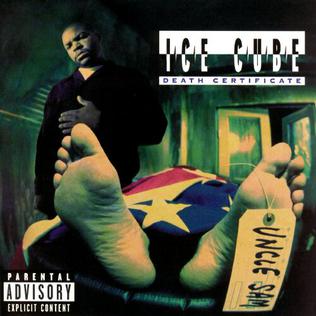 Ice Cube
Ice Cube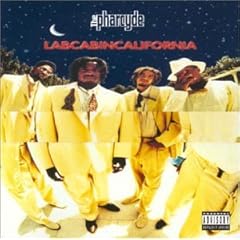 Pharcyde
Pharcyde Omid
Omid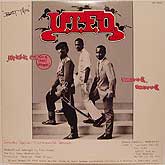 UTFO
UTFO